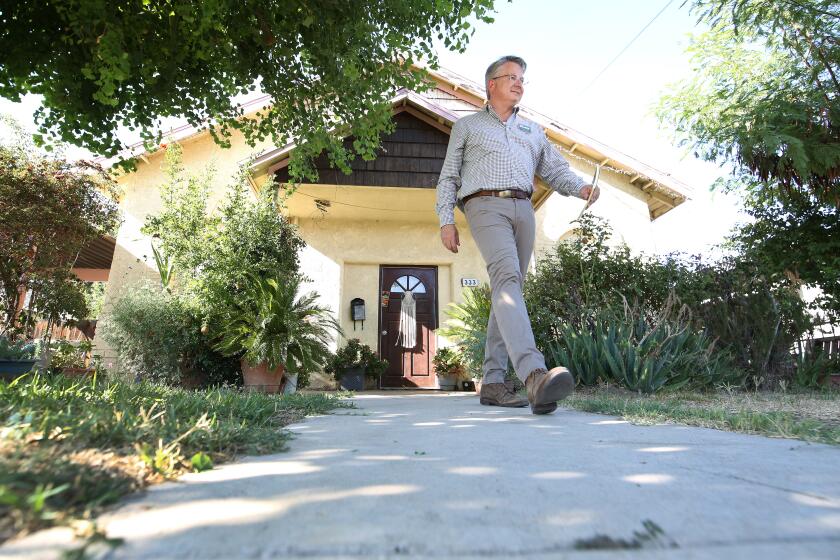The Latino vote in California could tip the balance of power. Here’s how the parties appeal to them

On a recent Tuesday in Sacramento, Alexa Sosa Nunez put in her AirPods, stacked her printed script and took a deep breath before she dialed her first call on behalf of Democratic congressional candidate Rudy Salas.
The 50-year-old woman who answered the phone said immigration is her top priority this election.
Sosa Nunez, who works for the voter mobilization group Communities for a New California Action Fund, told her that Salas supports a pathway to citizenship for undocumented workers. Salas is running against Republican Rep. David Valadao for control of California’s 22nd Congressional District in the San Joaquin Valley.
“Can we count on your vote?” she asked.
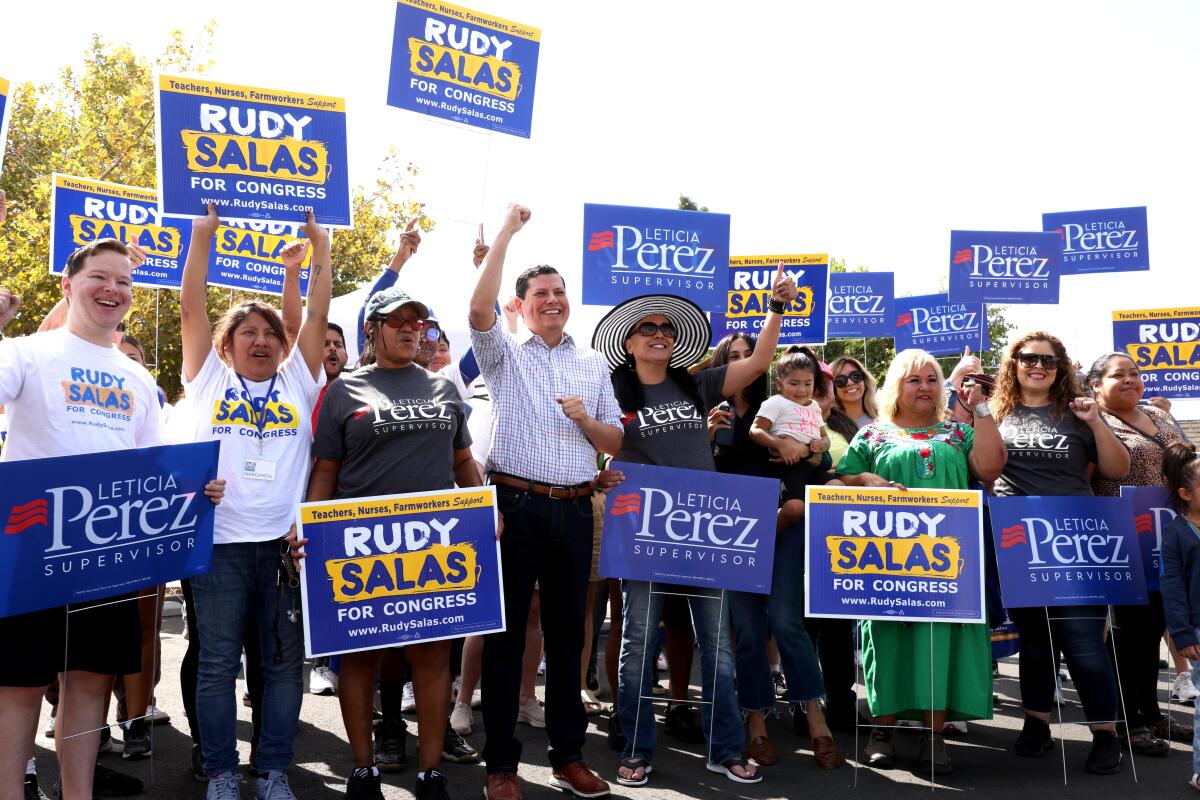
“Oh yeah,” the woman replied. “I have family that — they need something. We need to do something so they can get papers here.”
Some of California’s most competitive congressional races are in districts with significant Latino populations. In the 13th Congressional District, which is centered in Merced County and stretches from Lathrop to Coalinga, 50% of all eligible voters are Latino. In the 22nd Congressional District, encompassing portions of Kern, Kings and Tulare counties, that share is 59%. And in the 27th Congressional District, which spans northern Los Angeles County from Santa Clarita to the Kern County line, it’s 33%.
The races for those seats — currently occupied by Republicans in districtsPresident Biden won in 2020 — are critical to determining which party will control Congress next year and, by extension, how much the next president will achieve while in the White House.

If Democrats flip just four seats held by Republicans across the country, they would take back control of the U.S. House. In California, home to six tight congressional races, winning could come down to who appeals to the most Latino residents.
House speaker and minority leader campaign for California congressional candidates, underscoring the state’s importance in controlling Congress.
Latino voters are an increasingly influential and diverse bloc that draws power from multiple sources. Voting trends vary widely between Mexican Americans and Cuban Americans, for instance. But in California, a poll of 1,000 Latino voters released Wednesday by the Latino Community Foundation found that Democratic challengers in the 13th, 22nd and 27th congressional districts all hold significant leads over their Republican opponents, with around a quarter of voters still undecided.
In these districts, Latino voters overwhelmingly cite cost of living, the economy and concerns about jobs as the top issues facing the country, according to the poll.
“Latino voters in California’s competitive districts will play a crucial role in determining the balance of power in the U.S. House of Representatives,” said Julián Castro, chief executive of the Latino Community Foundation.
Matt Barreto, who founded the Latino Policy and Politics Institute at UCLA and a political polling firm that works for the California Democratic Party, said the ingredients are there for a heightened Latino turnout this year because of the historic presidential campaign of Vice President Kamala Harris, the state’s former attorney general and U.S. senator. But it’s up to the candidates to convert that into votes.
Baretto cautioned that those Democratic candidates have to overcome historic underinvestment in regions such as the San Joaquin Valley, which has led to lower voter registration and turnout among Latinos compared with other racial and ethnic groups.
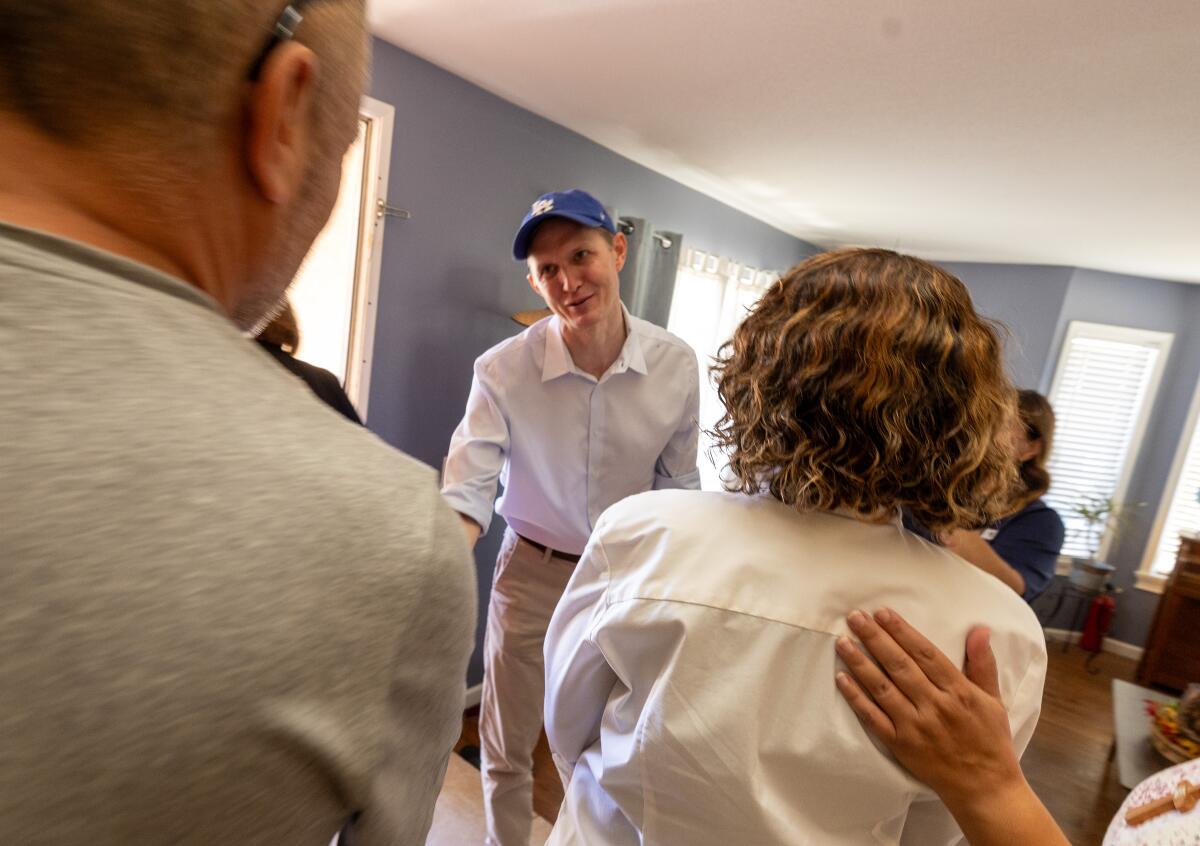
Campaigns and political groups are getting creative to court Latino voters. Democrat George Whitesides, who is vying to represent District 27, held a “ballots and burritos” event Sunday in Palmdale.
The California Republican Party has opened three Latino community centers, in Palmdale, Bakersfield and Merced, since 2022. (Other community centers opened by the Republican National Committee to reach Black, Latino, Asian and Native American voters have shuttered in places such as Connecticut and South Texas.)
The Democratic Congressional Campaign Committee held a fight night watch party last month in Atwater for Mexican boxer Canelo Álvarez.
And the Republican National Committee staffs a Latino regional engagement coordinator in Bakersfield, a man who was born in Mexico and became a U.S. citizen in March.
Those efforts — and the energy surrounding the presidential election — appear to be helping the campaigns make inroads with voters. Democratic Assemblymember Adam Gray, who is trying to oust Rep. John Duarte (R-Modesto) in the 13th District, said he’s had more volunteers in this campaign than in any other over the last 12 years. Salas said he’s on pace to raise twice what he raised last cycle, when he lost to Valadao in 2022 by 3 percentage points.
The LIBRE Initiative Action, a national conservative Latino political organization, is helping Duarte and other California Republican candidates. LIBRE President Daniel Garza said both parties took notice after the last election saw eight Latino Republicans flip blue House seats nationwide.
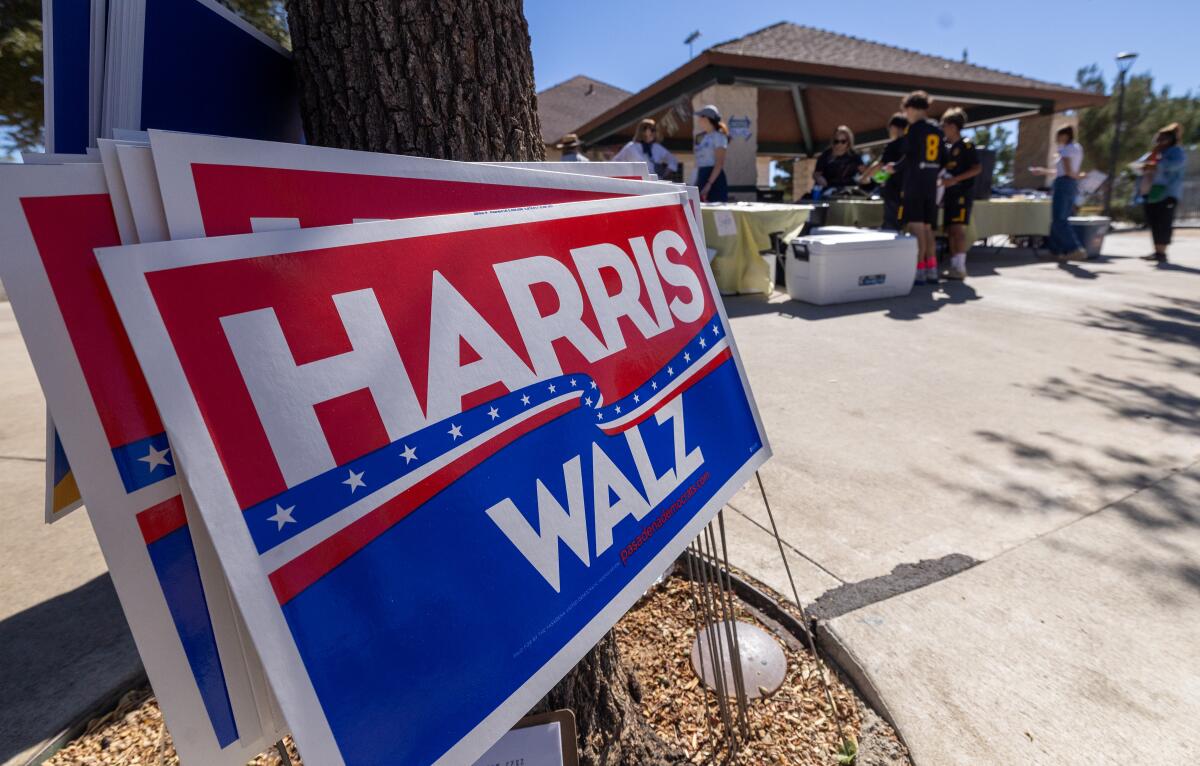
“For the most part, the Republican Party just did a very inadequate job, I think, of connecting with the Latino community,” he said. “That is no longer the case. What you’re seeing is much more investment. Groups like ours, who are center right, are driving a different conversation about policy in a different direction, pointing to different candidates. So it’s game on.”
In close races like Duarte’s, which he won in 2022 by just 564 votes, every vote is worth gold, Garza said.
In 2022, GOP Rep. John Duarte beat Adam Gray by just 564 votes. Both men are campaigning hard to win the rematch in a moderate Central Valley district.
That fact isn’t taken lightly by locals such as Eliseo Gamiño, who heads the Central Valley Leadership Round Table, a coalition of Latino community leaders and elected officials. Earlier this year, the group issued their first-ever GOP endorsement in favor of Duarte over his opponent Gray.
It’s not a ringing endorsement, though.
“Cual es el menos peor — which is the least worst?” he said. “Because none of them are the ideal candidate.”
Gamiño pointed to Gray’s ad featuring longtime Merced County Sheriff Vern Warnke, who previously cooperated with immigration authorities seeking custody of jail inmates for deportation. No incarcerated immigrants have been transferred to federal authorities for the past two years, according to the Merced Focus.
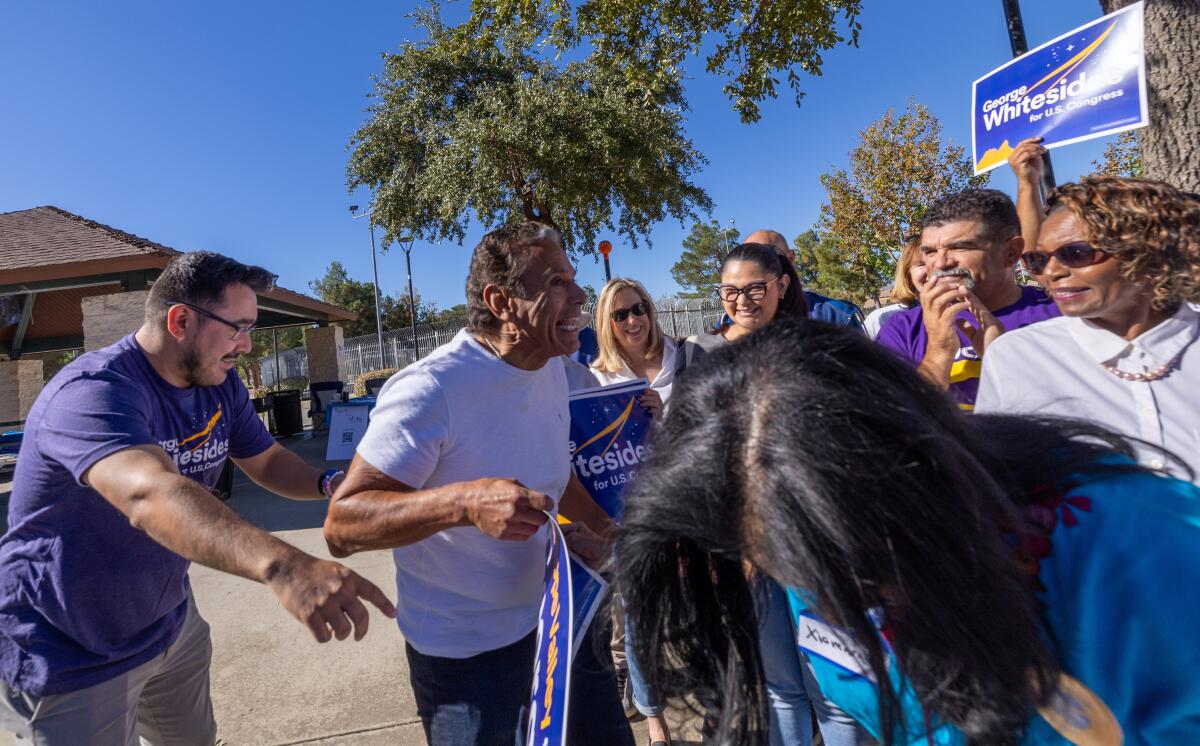
Gamiño contrasted that with an ad by Duarte’s campaign that features a Latino family playing the Mexican bingo game lotería. He said it’s clear that Duarte knows he needs Latino voters, and many in the community are disillusioned with the Democratic Party’s inability to pass immigration reform.
“Hispanics don’t forget that,” Gamiño said of the sheriff. “Duarte is doing more in regards to talking about bringing families out of the shadows. You’ve got to give him credit.”
Duarte broke with most Republicans last year when he voted against the hard-line Secure the Border Act, citing a desire to protect the Valley’s farmworkers who lack U.S. citizenship. Last year, he co-sponsored a bill that would establish a path to permanent residence for immigrants who arrived in the U.S. as children. Gray has said he supports comprehensive immigration reform that includes a path to citizenship. As a California assemblyman, he voted for a 2017 bill that prohibited landlords from disclosing tenants’ immigration status.
Earlier this month, the Mendota Chamber of Commerce hosted a Spanish-language debate for Duarte and Gray, but only Duarte showed up. Gray said he wasn’t invited until a couple of days before and when his campaign said he couldn’t make it, the chamber didn’t offer to reschedule.
“My opponent is running a campaign trying to mislead voters,” Gray said. “They’re trying to get in with the Latino community despite the fact that he helped to kill the compromise immigration reform bill.”
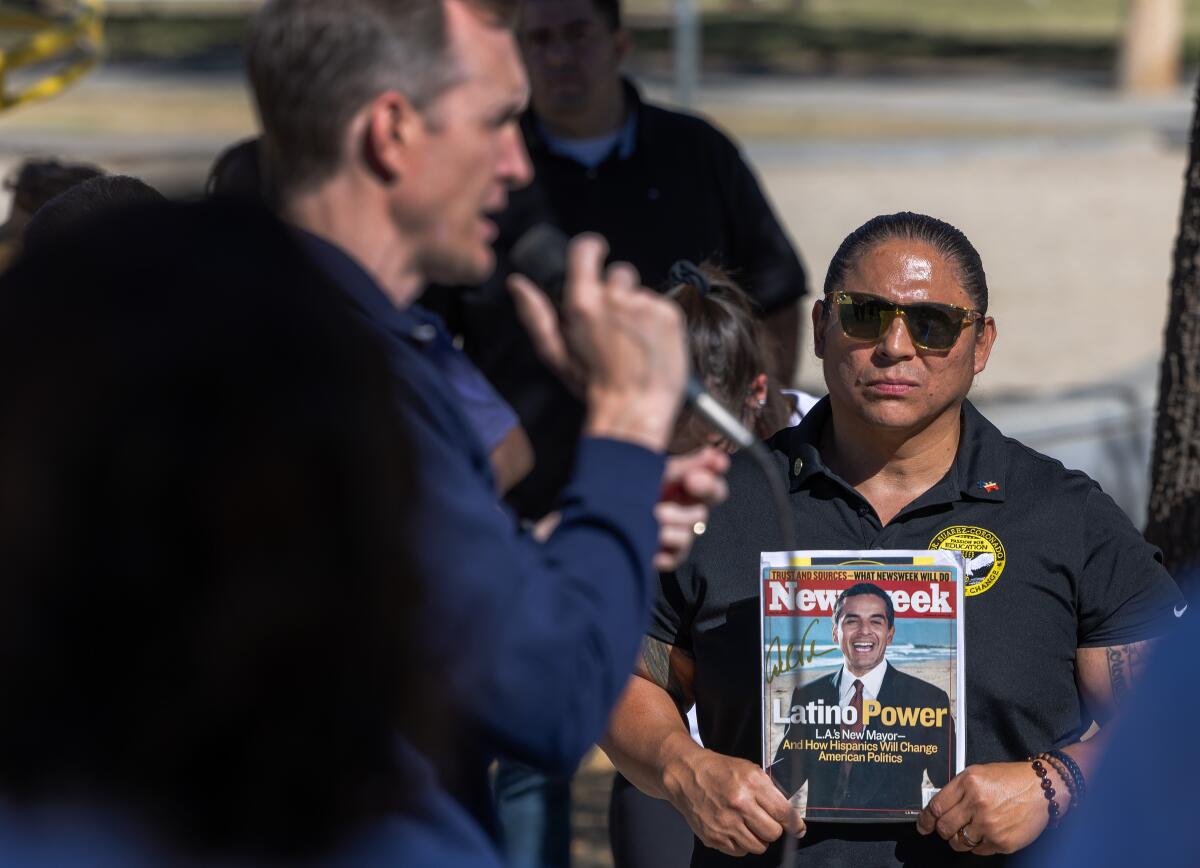
The bipartisan Border Act of 2024, which was opposed by many progressives because it did not include a path to citizenship, failed in the Senate after former President Trump pressured Republicans to abandon support for it. It was never brought to a vote in the House.
Duarte spokesman Duane Dichiara said his campaign has focused on reaching Latinos, who he said are moving quickly to the right politically.
“Democrats are ill prepared because what they want to talk about all the time is immigration and racism,” Dichiara said. “Most Hispanics don’t think we’re racist and most Hispanics want to secure the border.”
Voters in Congressional District 22 say the hard-fought race between GOP incumbent Rep. David Valadao and his Democratic challenger, Rudy Salas, will come down to the man, not his party.
Because California’s swing district races may decide which party controls the House, both money and attention are in ample supply.
The Democratic National Committee announced last week that it had made a six-figure investment for a media campaign targeting diverse constituencies, including Latinos, in California districts with competitive House races. And the top House GOP super PAC dropped more than $4 million on TV ads to help Republican candidates in competitive California races, including $250,000 on Spanish-language ads.
Battleground California, the first statewide independent expenditure coalition targeting competitive races in districts with substantial shares of Latino, Asian and Black voters, also has spent $4 million toward its goal of a Democratic-controlled Congress.
The campaigns for the California swing seats, however, are more grounded in local issues and the individual, personal appeal of the candidates.
“Latino voters are Americans who love this country and deserve security like every American,” said Rep. Mike Garcia (R-Santa Clarita). “For my campaign, this isn’t an ‘outreach’ program as I am literally part of this community.”
Salas, the son of farmworkers, hopes to become the first Latino in Congress to represent the Central Valley. His campaign has partnered with organizers from United Farm Workers who are helping him connect with hard-to-reach voters.
“I tell people, ‘Look, I’m just a Central Valley kid. I used to wake up early in the morning to go out and work with my dad in the fields and in construction,’” he said. “We know we have support in the community, it’s just about getting them to turn in the ballot.”
Back at Communities for a New California, Sosa Nunez, the woman phone banking on Salas’ behalf, was routed to another voter. This time, a 22-year-old woman answered in Spanish. Sosa Nunez told her Salas is in favor of women’s reproductive rights, including access to abortion.
“I’m not in favor of that procedure,” the woman replied.
Sosa Nunez asked how much power the woman thinks her vote has to make a difference in her community.
“Nada,” she said. None.
One in three voters in the 22nd District is Latina, Sosa Nunez told her.
“Our vote can really impact elections,” she said. “I recommend that you do your research — and vote.”
More to Read
Get the L.A. Times Politics newsletter
Deeply reported insights into legislation, politics and policy from Sacramento, Washington and beyond. In your inbox three times per week.
You may occasionally receive promotional content from the Los Angeles Times.

